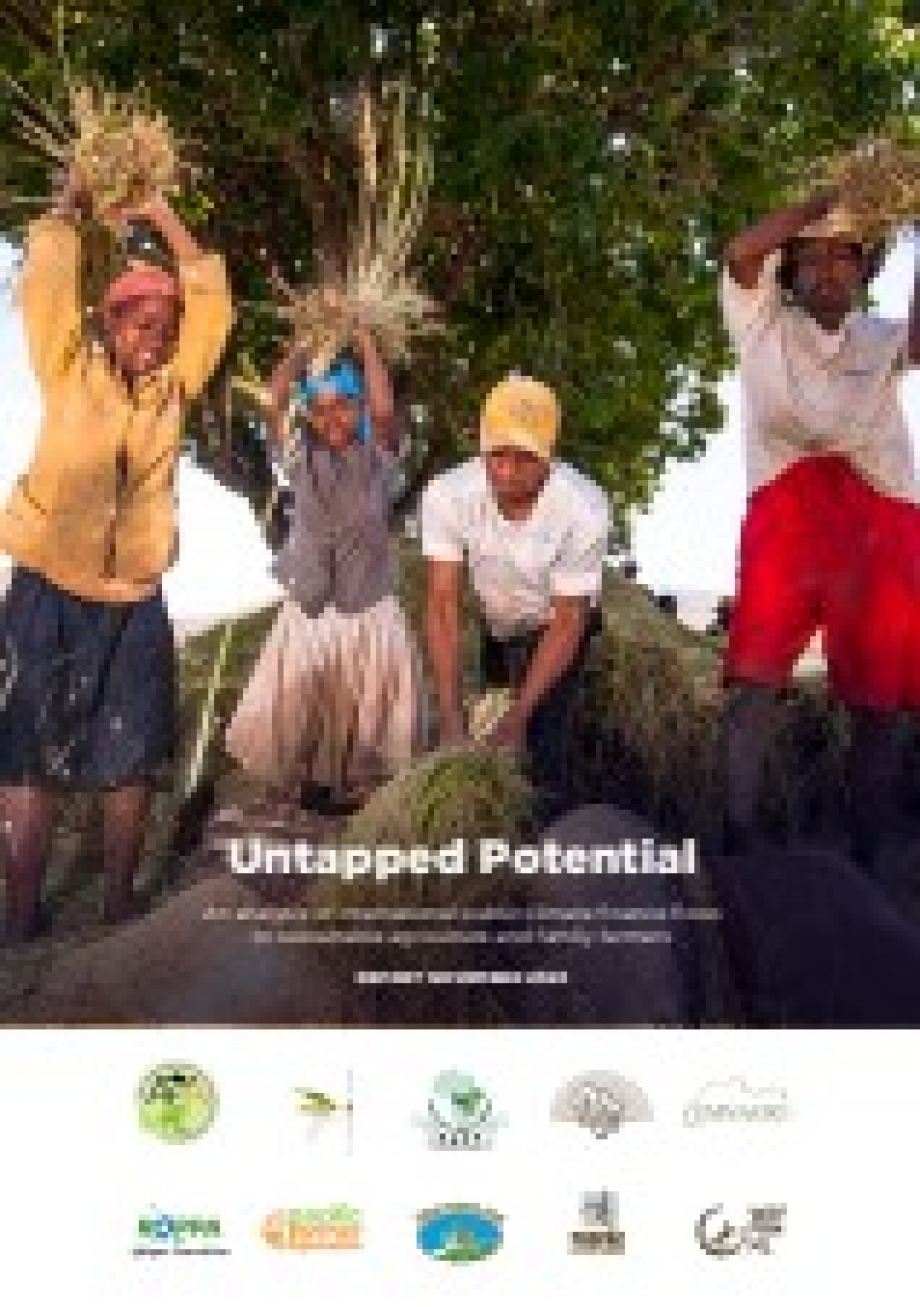Highlights

Small-scale family farmers are the unsung heroes of the global food system. They produce over a third of the world’s food and are key to climate adaptation, yet new analysis reveals they receive just 0.3% of international climate finance.

In the heart of Marechal Cândido Rondon, a small rural community in Brazil, Matheus Gustavo Bloedorn and his family embarked on a journey fuelled by ambition and a vision for growth. Their story is a testament to the transformative impact of Cresol, a rural credit union that has been changing ...

A global survey across 13 countries in Asia, Africa and Latin America suggests smallholder farmers are spending US$368 billion of their own income every year on measures to adapt to climate change including through conserving or restoring biodiversity, according to the Forest and Farm Facility and IIED.

El Ceibo cooperative of coca producers developed a communal financial entity to support its members to invest in improvements to their cocoa production. The creation of this internal finance mechanism made it possible to mobilise money from El Ceibo’s cooperatives to offer appropriate credit products to its members.
In the heart ...

This exchange brings together forest and farm producer organizations (FFPOs), Indigenous Peoples, Afro-descendants, and local communities as part of the Decade of Family Farming. LIVE STREAMING: https://fb.watch/nDFSt90zdT/?mibextid=NOb6eG. The event aims to foster innovations in gastronomy that utilize agrobiodiversity and to promote conservation and the development of sustainable food systems.

Smallholders and Indigenous Peoples maintain most of the world’s remaining agrobiodiversity. Forest and farm producer organisations (FFPOs) and Indigenous Peoples and local community groups have developed at least five strategies and 18 tactics to incentivise and sustain agrobiodiversity conservation. It is time that governments and official development partners offer them ...

The annual Seed Fair "Muyu Raymi 2023" created synergies between Indigenous women producer groups, strenghtened their cultural identity and promoted the ancestral agricultural systems "Chakra" recently recognized as Globally Important Agricultural Heritage Systems (GIAHS) by FAO. The fair was a precious opportunity to exchange seed varieties and experiences between rural communities.

Following three days of intensive discussions and collaborative efforts, the workshop has concluded with a landmark declaration that underscores the commitment of Forest and Farm Producer Organizations (FFPOs) to play a pivotal role in landscape and forest restoration.

The MA&D methodology is based on participatory principles and empowerment. It uses a facilitative approach to help ‘entrepreneurs’ rather than ‘beneficiaries’ know and control all elements of their enterprises. The fully participatory training online course runs over four 2.5-hour sessions.
FFF welcomes its new Manager
09/08/2023
09/08/2023

Mr Luis Miguel Aparicio, a forest engineer, has broad international experience from a range of international organizations, government agencies and the private sector. Luis Miguel shares FFF's commitment and dedication to improving the living of forest and farm producers globally.
